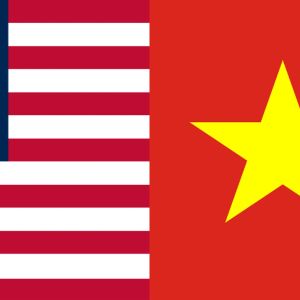The United States is pressing Vietnam to curb the use of Chinese technology in electronics assembled for export to American markets, according to multiple sources familiar with ongoing negotiations. The effort is part of Washington’s attempt to redraw global tech supply chains away from China, with Vietnam positioned as a key pivot point. Behind the scenes, American trade officials have urged Vietnamese authorities to restrict Chinese content in high-tech goods such as smartphones, virtual reality headsets, and computing devices. These items are produced in Vietnam for companies like Apple, Samsung, Meta, and Google but often rely on Chinese-made components. Vietnam is being asked to “reduce its dependency on Chinese high-tech,” one person briefed on the discussions said, adding that it’s part of restructuring supply chains to lower the U.S.’s own exposure to Chinese parts Vietnam faces tariff threat and tough transition The Trump administration has warned of steep tariffs as high as 46% on Vietnamese exports if the country does not comply with the new expectations . A July 8 deadline looms over the discussions, adding urgency to a negotiation that touches on both trade and national security. Vietnamese firms have expressed a willingness to adapt but caution that such a shift would require time and capital. For now, China remains the dominant supplier of components vital to the Southeast Asian country’s tech assembly. Last year, Vietnam imported around $44 billion worth of electronics and parts from China. In turn, it exported $33 billion in tech goods to the United States. The U.S. is also pressing the country to crack down on goods that are made in China and falsely labeled as “Made in Vietnam” to bypass tariffs, a practice that Washington says undermines its trade policy. Taiwan bans tech exports to Chinese AI giants Vietnam is not the only Asian manufacturing hub facing pressure to reduce exposure to Chinese technology. Taiwan has recently imposed a sweeping export ban targeting Chinese AI and semiconductor firms, halting the supply of critical chipmaking technologies to Huawei Technologies Co. and Semiconductor Manufacturing International Corp. (SMIC). The decision was announced by Taiwan’s International Trade Administration and comes as part of new domestic laws that align with U.S. export control efforts. The new restrictions specifically block Taiwanese companies from exporting chip fabrication tools, manufacturing equipment, and essential materials to Huawei, SMIC, and several of their subsidiaries. Any such exports now require government approval. This move comes on the heels of Taiwan President Lai Ching-te’s declaration that China is a “foreign hostile force.” Lai’s administration has been focused on countering Beijing’s influence operations, and these tech restrictions serve as a clear economic signal of resistance. Without Taiwanese parts and tools, Huawei and SMIC may struggle to maintain momentum in advanced chip development. This may hinder their efforts to match global chip leaders like Nvidia soon, but that impact looks to be seen for now. With negotiations still unresolved, all eyes now turn to a potential diplomatic breakthrough. Vietnamese Communist Party chief To Lam is expected to meet with U.S. President Donald Trump in Washington later this month. While no official date has been confirmed, officials with knowledge of the matter say trade, tech, and tariffs will dominate the agenda. Cryptopolitan Academy: Coming Soon - A New Way to Earn Passive Income with DeFi in 2025. Learn More

















